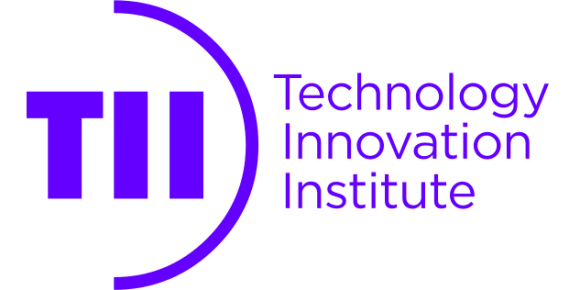Monday 4 September 2023, 09:00 – 12:30
Room: Meridian 2
T1: Unlocking New Horizons: SDN and Blockchain Synergy in IoT Networks
Speakers:
- Murat Karakus, Ankara University, Turkiye
- Evrim Guler, Bartin University, Turkiye
- Suleyman Uludag, University of Michigan - Flint, USA
Abstract:
Software Defined Networking (SDN), Blockchain (BC), and the Internet of Things (IoT) have emerged as complementary areas that help ensure security, boost network performance, and improve quality of life. A wide variety of use cases and ubiquitous availability drive the proliferation of IoT devices. When combined with the emergence of SDN and BC, this environment presents rich opportunities for numerous emerging research efforts and provides a motivation that forms the foundations of our tutorial. We propose to present a comprehensive coverage of the integration of BC and SDN in the IoT ecosystem, referred to hereafter as BC-enabled Software-Defined IoT (BC-SDIoT). We first cover the motivations and drivers for BC-SDIoT, as well as the benefits and drawbacks. Second, we categorize the relevant studies according to six key implementation objectives and ideas that combine these technologies to create smart, secure, and effective frameworks: Security, computing paradigms (edge and fog computing), trust management, access control & authentication, privacy, and networking. In the corresponding sections, we present the categories (i.e., problem domains) of the aforementioned novel taxonomy and discuss related studies (i.e., solutions) in depth. Finally, we outline potential major challenges, open issues, and prospects that require further research attention to broaden newer research domains in BC-SDIoT. A software simulation is also a part of the tutorial to demonstrate a fundamental vulnerability of SDN that an integrated BC implementation can mitigate.
Biographies of the Speakers:
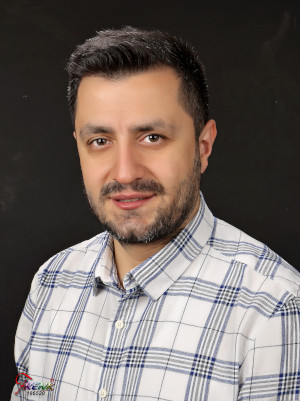 Murat Karakus received a B.S. degree in Mathematics from Suleyman Demirel University, Turkey, in 2009, and the M.S. degree in Computer Science and Information Systems from the University of Michigan-Flint, USA, in 2013, and the Ph.D. degree in the Computer Science from Purdue School of Science in Indianapolis, USA, in 2018. He is currently working as an Assistant Professor at Ankara University in Turkey. He received the Best Paper Award at ACM SIGITE 2011 conference. He has 25+ peer-reviewed publications and is a reviewer for esteemed IEEE, ACM, and Elsevier journals and conferences. His research interests include next-generation network architectures, such as Software-Defined Networking (SDN), Blockchain technology, network scalability, Quality of Service (QoS), routing, economic analysis of network architectures and designs, and pricing network services.
Murat Karakus received a B.S. degree in Mathematics from Suleyman Demirel University, Turkey, in 2009, and the M.S. degree in Computer Science and Information Systems from the University of Michigan-Flint, USA, in 2013, and the Ph.D. degree in the Computer Science from Purdue School of Science in Indianapolis, USA, in 2018. He is currently working as an Assistant Professor at Ankara University in Turkey. He received the Best Paper Award at ACM SIGITE 2011 conference. He has 25+ peer-reviewed publications and is a reviewer for esteemed IEEE, ACM, and Elsevier journals and conferences. His research interests include next-generation network architectures, such as Software-Defined Networking (SDN), Blockchain technology, network scalability, Quality of Service (QoS), routing, economic analysis of network architectures and designs, and pricing network services.
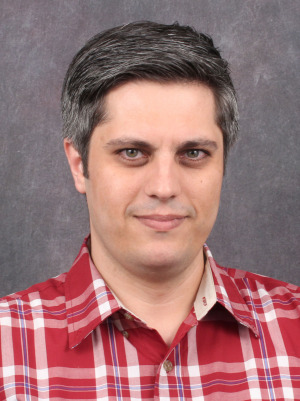 Evrim Guler received a Ph.D. in Computer Science from Georgia State University, Atlanta, GA in 2019. Currently, he is an Assistant Professor in the Department of Computer Engineering at Bartin University, Turkey, where he leads the Distance Education and Research Center. His research interests include Elastic Optical Networks, Software Defined Networking, Network Function Virtualization, Blockchain, routing, smart systems, and network modeling.
Evrim Guler received a Ph.D. in Computer Science from Georgia State University, Atlanta, GA in 2019. Currently, he is an Assistant Professor in the Department of Computer Engineering at Bartin University, Turkey, where he leads the Distance Education and Research Center. His research interests include Elastic Optical Networks, Software Defined Networking, Network Function Virtualization, Blockchain, routing, smart systems, and network modeling.
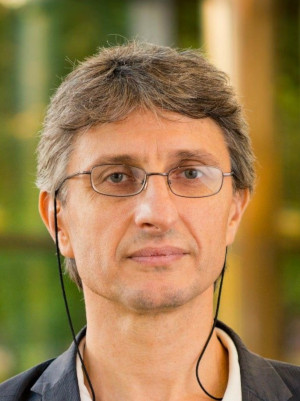 Suleyman Uludag received his Ph.D. from DePaul University, Chicago in 2007. He is the director and a professor of computer science at the University of Michigan - Flint. The general areas of his research are cybersecurity, computer networks, and curriculum and program development. He was awarded the Lois Matz Rosen Junior Faculty Excellence in Teaching Award in September 2010 and the Research Award (Scholarly and Creative Activity) in April 2020 at the University of Michigan - Flint. He has also been a Fulbright Scholar (Core Program) at TOBB University of Economics and Technology in Ankara, Turkey, during the 2012-2013 academic year. He has been awarded another Fulbright Core Award to teach and research at the University of Sarajevo, Bosnia & Herzegovina for the 2018-19 academic year. He was a visiting scholar at the TCIPG (Trustworthy Cyber Infrastructure for the Power Grid) at the University of Illinois at Urbana-Champaign and the MONET research group of Professor Klara Nahrstedt at UIUC from August 2013 to August 2014. TCIPG is the preeminent research center on power grid cybersecurity. He has been an affiliated faculty at Michigan Institute for Data Science (MIDAS) at the University of Michigan, Ann Arbor (midas.umich.edu). He has delivered twelve tutorials so far: IEEE ICCCN 2011, IMTIC 2012, IFIP NTMS 2014, IEEE CCNC 2015, NetSys 2015, ITC 27 2015, IIT 2015, IEEE NOMS 2016, IEEE ICC 2016, IEEE CCNC 2017, and CCNC 2018, CCNC 2019.
Suleyman Uludag received his Ph.D. from DePaul University, Chicago in 2007. He is the director and a professor of computer science at the University of Michigan - Flint. The general areas of his research are cybersecurity, computer networks, and curriculum and program development. He was awarded the Lois Matz Rosen Junior Faculty Excellence in Teaching Award in September 2010 and the Research Award (Scholarly and Creative Activity) in April 2020 at the University of Michigan - Flint. He has also been a Fulbright Scholar (Core Program) at TOBB University of Economics and Technology in Ankara, Turkey, during the 2012-2013 academic year. He has been awarded another Fulbright Core Award to teach and research at the University of Sarajevo, Bosnia & Herzegovina for the 2018-19 academic year. He was a visiting scholar at the TCIPG (Trustworthy Cyber Infrastructure for the Power Grid) at the University of Illinois at Urbana-Champaign and the MONET research group of Professor Klara Nahrstedt at UIUC from August 2013 to August 2014. TCIPG is the preeminent research center on power grid cybersecurity. He has been an affiliated faculty at Michigan Institute for Data Science (MIDAS) at the University of Michigan, Ann Arbor (midas.umich.edu). He has delivered twelve tutorials so far: IEEE ICCCN 2011, IMTIC 2012, IFIP NTMS 2014, IEEE CCNC 2015, NetSys 2015, ITC 27 2015, IIT 2015, IEEE NOMS 2016, IEEE ICC 2016, IEEE CCNC 2017, and CCNC 2018, CCNC 2019.
Monday 4 September 2023, 14:00 – 17:30
Room: Meridian 3
T2: Interplay of AI and Wireless for 6G IoT
Speakers:
- Prof. Aryan Kaushik, University of Sussex, UK
- Prof. Carlo Fischione, KTH Royal Institute of Technology, Sweden
Abstract:
There is an indispensable need of technical advancements and digital transformation for the next generation networks where artificial intelligence (AI) and machine learning (ML) approaches can assist advanced functionalities of wireless communications and in parallel, wireless can enhance the performance of ML services. In recent industrial reports it is forecast that internet-of-things (IoT) technology with massively connected devices will be the fastest growing mobile device category by end of this year. Furthermore, the latest Release 18 of 3GPP indicates that non-terrestrial networks (NTN) IoT systems as special usage scenario will play a vital role in the performance enhancement of fifth generation (5G) Advanced and sixth generation (6G) networks. In the direction of NTN IoT technology, evolving signal processing methods, edge and cloud computing, deep reinforcement learning techniques for low Earth orbit satellites and unmanned aerial vehicles in NTNs etc., have drastically changed the current realization of the space, sky and terrestrial communication networks. In this tutorial, we will provide a comprehensive interplay review of the state-of-the-art methods, potential/open challenges, and usage scenarios that enable AI and deep reinforcement learning assisted NTN IoT employing edge-cloud computing and energy-efficient solutions, and simultaneously wireless methods that are specifically designed to support ML services over intelligent IoT networks. In the ‘over-the-air’ ML approach, multiple devices communicate simultaneously over the same time slot and frequency band to exploit the superposition property of wireless channels for gradient averaging over-the-air. In physical and medium access control layer optimized for ML, active learning metrics guide the allocation of spectrum and energy resources for faster or more accurate ML. The tutorial will cover key enabling technologies for AI and wireless communications towards the development of exciting new vertical frameworks.
Biographies of the Speakers:
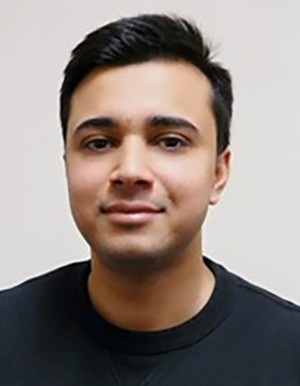 Prof. Aryan Kaushik is Assistant Professor at the University of Sussex, UK. Prior to that, he has been with University College London, UK, University of Edinburgh, UK, and Hong Kong University of Science and Technology, Hong Kong. He has held visiting appointments at Imperial College London, UK, University of Luxembourg, Luxembourg, Beihang University, China, and Athena RC, Greece. His interests are broadly in 6G, wireless communications, signal processing and AI. He is the Editor of upcoming books on “Integrated Sensing and Communications for Future Wireless Networks: Principles, Advances and Key Enabling Technologies,” Elsevier, and "Non-Terrestrial Networks for Advanced Global Connectivity," Elsevier. He has been involved in several collaborative projects of international importance as PI/Co-I or research lead. He has been involved in PhD Thesis Evaluation Committee internationally such as at UC3M, Spain. He is an Associate Editor of IEEE Open Journal of the Communications Society (OJCOMS), IEEE Communications Letters, IET Signal Processing and IET Networks, and Lead/Co-Lead Guest Editor for Special Issues at IEEE IoT Magazine, IEEE OJCOMS, IET Signal Processing and IET Networks. He has delivered speeches at several international conferences and academic/industrial events worldwide. He has been an Invited Panel Speaker at IEEE VTC-Spring 2023, EuCNC and 6G Summit 2023, and IEEE BlackSeaCom 2023, Tutorial Speaker at IEEE Globecom 2023, IEEE Meditcom 2023, IEEE WCNC 2023, EuCNC and 6G Summit 2023, IEEE BlackSeaCom 2023 and IEEE SmartGridComm 2023, Keynote/Invited Speaker at IEEE WCNC 2023 workshop, ICASIS 2023, WiSPNET 2023, FutureWei USA University Days Workshop 2023, Huawei UK Vision Forum 2023, and many other venues globally. He has been involved in chairing and organising in different capacities at several IEEE international conferences such as at IEEE ICC 2024, IEEE ICMLCN 2024, IEEE WCNC 2023-24, IEEE WF-PST 2024, IEEE Globecom 2023, IEEE ICC 2023, IEEE PIMRC 2022-23, IEEE BlackSeaCom 2023, IEEE MeditCom 2023, IEEE SmartGridComm 2023 and IEEE SECON 2022. Website: https://sites.google.com/view/aryankaushik/
Prof. Aryan Kaushik is Assistant Professor at the University of Sussex, UK. Prior to that, he has been with University College London, UK, University of Edinburgh, UK, and Hong Kong University of Science and Technology, Hong Kong. He has held visiting appointments at Imperial College London, UK, University of Luxembourg, Luxembourg, Beihang University, China, and Athena RC, Greece. His interests are broadly in 6G, wireless communications, signal processing and AI. He is the Editor of upcoming books on “Integrated Sensing and Communications for Future Wireless Networks: Principles, Advances and Key Enabling Technologies,” Elsevier, and "Non-Terrestrial Networks for Advanced Global Connectivity," Elsevier. He has been involved in several collaborative projects of international importance as PI/Co-I or research lead. He has been involved in PhD Thesis Evaluation Committee internationally such as at UC3M, Spain. He is an Associate Editor of IEEE Open Journal of the Communications Society (OJCOMS), IEEE Communications Letters, IET Signal Processing and IET Networks, and Lead/Co-Lead Guest Editor for Special Issues at IEEE IoT Magazine, IEEE OJCOMS, IET Signal Processing and IET Networks. He has delivered speeches at several international conferences and academic/industrial events worldwide. He has been an Invited Panel Speaker at IEEE VTC-Spring 2023, EuCNC and 6G Summit 2023, and IEEE BlackSeaCom 2023, Tutorial Speaker at IEEE Globecom 2023, IEEE Meditcom 2023, IEEE WCNC 2023, EuCNC and 6G Summit 2023, IEEE BlackSeaCom 2023 and IEEE SmartGridComm 2023, Keynote/Invited Speaker at IEEE WCNC 2023 workshop, ICASIS 2023, WiSPNET 2023, FutureWei USA University Days Workshop 2023, Huawei UK Vision Forum 2023, and many other venues globally. He has been involved in chairing and organising in different capacities at several IEEE international conferences such as at IEEE ICC 2024, IEEE ICMLCN 2024, IEEE WCNC 2023-24, IEEE WF-PST 2024, IEEE Globecom 2023, IEEE ICC 2023, IEEE PIMRC 2022-23, IEEE BlackSeaCom 2023, IEEE MeditCom 2023, IEEE SmartGridComm 2023 and IEEE SECON 2022. Website: https://sites.google.com/view/aryankaushik/
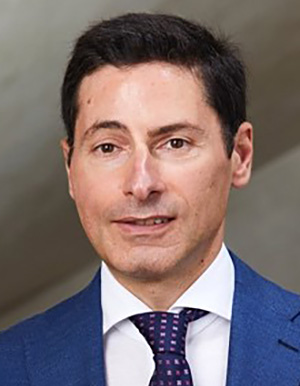 Prof. Carlo Fischione is full Professor at KTH Royal Institute of Technology, Electrical Engineering and Computer Science, Division of Network and Systems Engineering, Stockholm, Sweden. He is Director of the KTH-Ericsson Data Science Micro Degree Program directed to Ericsson globally, and Chair of the IEEE Machine Learning for Communications Emerging Technologies Initiative. He is distinguished lecturer of the IEEE Communication Society, and the funding Chair of the first IEEE International Conference on Machine Learning for Communication and Networking (IEEE ICMLCN 2024). He received the Ph.D. degree in Electrical and Information Engineering (3/3 years) in May 2005 and the Laurea degree in Electronic Engineering (Laurea, Summa cum Laude, 5/5 years) in April 2001, both from University of L’Aquila, Italy, He has held research positions at Massachusetts Institute of Technology, Cambridge, MA (2015, Visiting Professor); Harvard University, Cambridge, MA (2015, Associate); and University of California at Berkeley, CA (2004-2005, Visiting Scholar, and 2007-2008, Research Associate). He is Honorary Professor at University of L’Aquila, Italy, Department of Mathematics, Information Engineering, and Computer Science. His research interests include applied optimization, wireless, sensor networks, Internet of things, and machine learning. He has co-authored over 200 publications, including a book, book chapters, international journals and conferences, and international patents. He received a number of awards, such as the “IEEE Communication Society S. O. Rice” award for the best IEEE Transactions on Communications paper of 2018, the best paper award of IEEE Transactions on Industrial Informatics (2007). He is Editor of IEEE Transactions on Communications (Machine Learning for Communications area) and IEEE Transactions on Communications for Machine Learning and Networking, and has been serving as Associated Editor of IFAC Automatica (2014-2019). He is co-founder and scientific advisor of ELK.Audio. He is Member of IEEE (the Institute of Electrical and Electronic Engineers), and Ordinary Member of DASP (the Italian academy of history Deputazione Abruzzese di Storia Patria). Website: https://people.kth.se/~carlofi/
Prof. Carlo Fischione is full Professor at KTH Royal Institute of Technology, Electrical Engineering and Computer Science, Division of Network and Systems Engineering, Stockholm, Sweden. He is Director of the KTH-Ericsson Data Science Micro Degree Program directed to Ericsson globally, and Chair of the IEEE Machine Learning for Communications Emerging Technologies Initiative. He is distinguished lecturer of the IEEE Communication Society, and the funding Chair of the first IEEE International Conference on Machine Learning for Communication and Networking (IEEE ICMLCN 2024). He received the Ph.D. degree in Electrical and Information Engineering (3/3 years) in May 2005 and the Laurea degree in Electronic Engineering (Laurea, Summa cum Laude, 5/5 years) in April 2001, both from University of L’Aquila, Italy, He has held research positions at Massachusetts Institute of Technology, Cambridge, MA (2015, Visiting Professor); Harvard University, Cambridge, MA (2015, Associate); and University of California at Berkeley, CA (2004-2005, Visiting Scholar, and 2007-2008, Research Associate). He is Honorary Professor at University of L’Aquila, Italy, Department of Mathematics, Information Engineering, and Computer Science. His research interests include applied optimization, wireless, sensor networks, Internet of things, and machine learning. He has co-authored over 200 publications, including a book, book chapters, international journals and conferences, and international patents. He received a number of awards, such as the “IEEE Communication Society S. O. Rice” award for the best IEEE Transactions on Communications paper of 2018, the best paper award of IEEE Transactions on Industrial Informatics (2007). He is Editor of IEEE Transactions on Communications (Machine Learning for Communications area) and IEEE Transactions on Communications for Machine Learning and Networking, and has been serving as Associated Editor of IFAC Automatica (2014-2019). He is co-founder and scientific advisor of ELK.Audio. He is Member of IEEE (the Institute of Electrical and Electronic Engineers), and Ordinary Member of DASP (the Italian academy of history Deputazione Abruzzese di Storia Patria). Website: https://people.kth.se/~carlofi/




